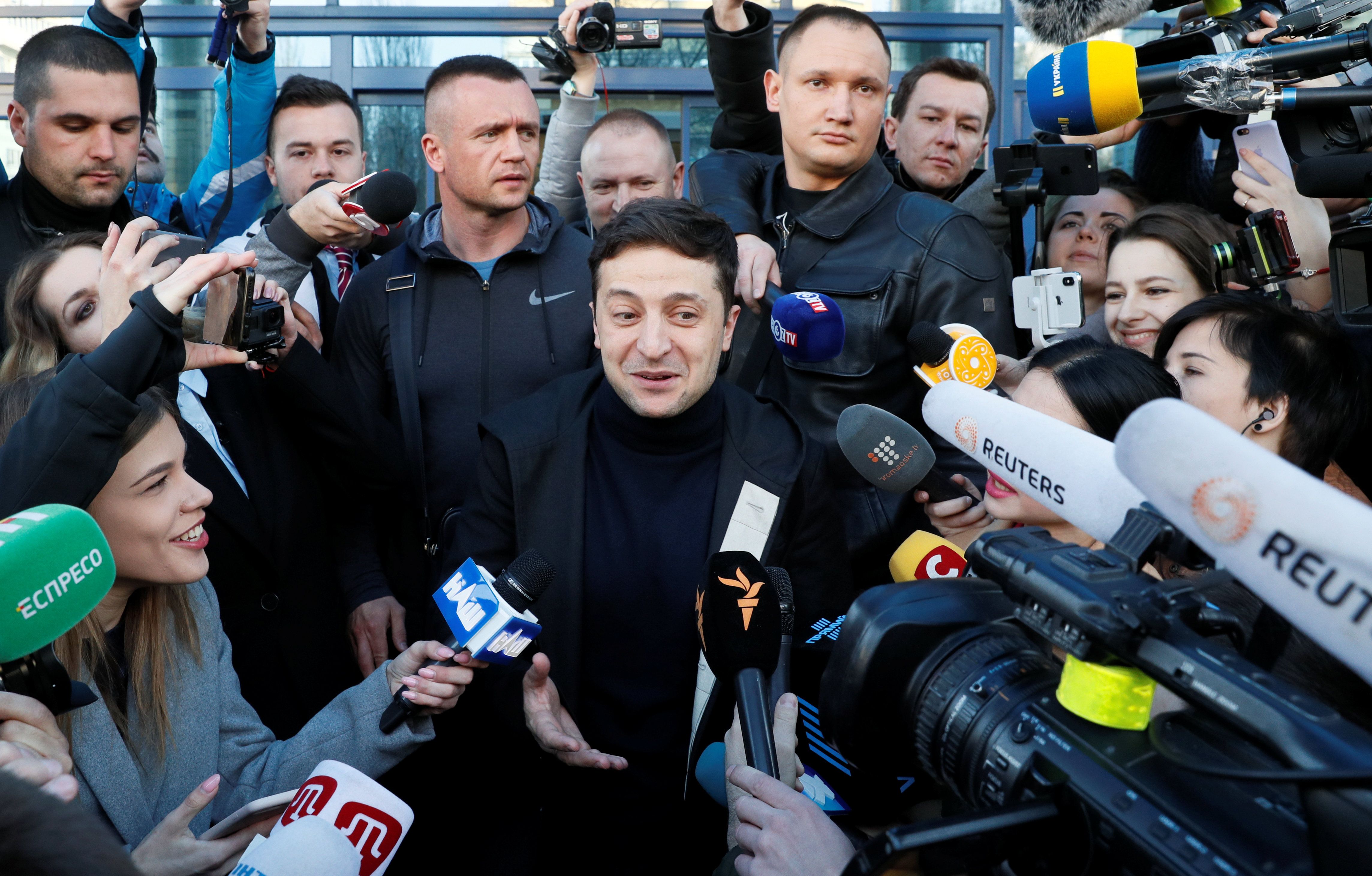Opinion polls suggest that comedian Volodymyr Zelenskiy has become the prohibitive favorite to be elected president of Ukraine on Sunday. Zelenskiy, known mainly for his role as Ukraine's president on the TV show "Servant of the People," has reached this point without any previous experience of politics and without clear policy positions on much of anything. That's less surprising when you discover that just 9 percent of Ukrainians say they have confidence in their government.
Zelenskiy will immediately face formidable challenges. He must help energize a stagnant economy, clean up a notoriously corrupt political culture, advance the reforms necessary to win continued financial support from the International Monetary Fund, and build new relationships with both Russia and Europe at a time of war in the separatist Ukrainian provinces along the Russian border. He must do all this with no experience of government while surrounded by a political and business class that would like to see him fail.
That's why the most urgent question following his likely victory this weekend will be who will serve the servant? Who will Zelenskiy bring into government to help shape and then deliver on his agenda?
As with so many other aspects of the Zelenskiy political phenomenon, the answers aren't clear. He has reportedly sought advice from well-regarded former economy and finance ministers, as well as a number of journalists and anti-corruption activists.
But his campaign has batted down rumors about who might join his government. Media speculation, said a recent Zelenskiy statement, is "based on guesswork and assumptions. No personnel decisions have been made in Volodymyr Zelenskiy's team."
As importantly, Zelenskiy has few allies in Ukraine's parliament, and new parliamentary elections won't be held until October. Every newly elected leader promising to shake things up needs allies to enact new laws. Mexican President Andrés Manuel López Obrador's Morena party holds a majority in both houses of Mexico's Congress. Brazil's Jair Bolsonaro doesn't have that advantage in Brazil, where his party control very few seats. His falling popularity and struggles with Brazilian lawmakers reflect that.
